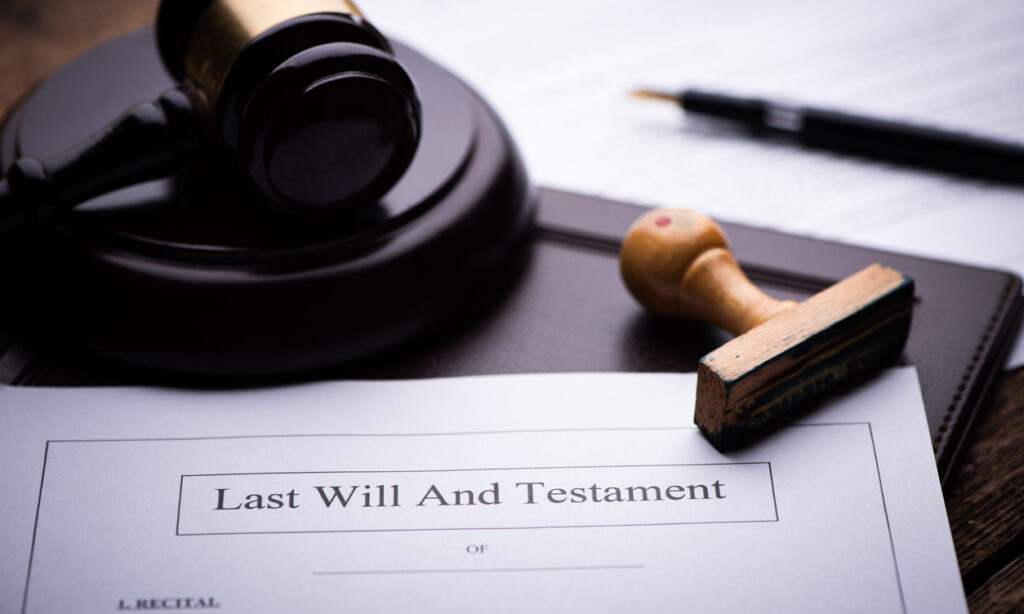What is a deputyship order?
A deputyship order can be issued if a person, known as the ‘client’, lacks sufficient mental capacity to manage their own health, welfare, financial or affairs.
There are two types of deputyship:
- Property and financial affairs deputyship
- Personal welfare deputyship
A property and financial affairs deputyship is the most common. The Court of Protection may appoint a deputy to manage the client’s financial affairs on their behalf. The deputy can make financial decisions for the client, but must always do so in the client’s best interests.
It is unusual for the Court to appoint a personal welfare deputy – instead it is more common for the Court to make issue-specific orders authorising another person to make individual decisions on behalf of the client.
Why set up a deputyship?
A financial deputyship will be needed if a client lacks sufficient mental capacity to manage their own financial affairs, has assets that need to be administered, or financial decisions that need to be made – and has not previously executed a valid power of attorney.
What is the difference between a deputyship order and a lasting power of attorney?
Ultimately the Court of Protection decides if someone lacks mental capacity, after considering the medical and other evidence submitted as part of the application for the appointment of a deputy. The solicitor dealing with the application will obtain medical evidence from a suitably qualified mental health professional.
Who can apply to be a deputy?
A deputyship order and a lasting power of attorney both allow an appointed person, or persons, to make decisions on behalf of someone who lacks mental capacity.
However, the main difference is that a lasting power of attorney is made by the client before they lose their mental capacity, so they’re able to decide and appoint their own attorney(s). Read more about powers of attorney.
If that individual did not make a lasting power of attorney before they lost their mental capacity, then an application can be made by someone else to become their deputy and manage the client’s affairs on their behalf.
The role of the deputy
In most cases, a spouse, partner or close family member will apply to become the deputy, although they must be over the age of 18.
When making the application to be appointed as a deputy, any criminal convictions or bankruptcy or insolvency issues must be declared to the Court of Protection, and this could lead to the Court refusing the application.
Where no one is willing to make an application, or there is no one suitable to act as a deputy for the client who lacks mental capacity, then a professional deputy can be appointed by the Court.
If the assets of the client are substantial in value, or are complex, then it may be necessary for a professional deputy to be appointed.
It is possible for more than one deputy to be appointed. This can be either:
- together (‘joint deputyship’), which means all the deputies have to agree on the decision; or
- separately or together (‘jointly and severally’), which means deputies can make decisions on their own or with other deputies.
Acting as a deputy can be onerous and time-consuming, therefore it’s important to understand the role and the duties of being a deputy.
What are the duties of a deputy?
Property and financial affairs
A property and financial deputy looks after the client’s financial affairs, including paying bills and operating bank accounts, making and changing investments and making financial decisions on behalf of the client – but always in the client’s best interests.
This type of deputy can do most of the things the client can do, such as sell the client’s house if authorised in the court order (or otherwise with the Court’s permission) on the client’s behalf.
A deputy cannot:
- make a will or change the client’s existing will
- make substantial gifts on the client’s behalf (unless a specific court order authorises this);
- hold any money or property in their own name on the client’s behalf
Any major decisions, unless duly authorised in the court order, need the Court’s specific permission.
A property and financial deputy must keep a record of all payments and keep copies of receipts for all payments.
Every year, the financial deputy has to provide an annual report to the Court. This gives the Court information on decisions that the deputy has made on the client’s behalf, and also provides full financial accounts for the Court to approve. Where the deputy is a professional person, details of the fees charged during the deputyship year and a best estimate of the fees to be charged for the year ahead will also be included.
Personal welfare
The role of a welfare deputy will depend on the authority that the Court has given to the deputy. For example, there could be an order in place allowing the deputy to give consent to certain specific medical treatment, or to decide where the client lives.
Who decides if someone lacks mental capacity?
The Mental Capacity Act 2005 sets out a Deputy’s duties. Read more about the responsibilities of a deputy on the gov.uk website.
Essentially, the deputy must ensure that he or she acts in the best interests of the person who lacks mental capacity, in the case of each decision made, and demonstrate that the client lacks sufficient mental capacity to make that decision. A financial deputy has a duty to keep accounts and to keep the client’s money and property entirely separate from their own finances.
The deputy can only make decisions if authorised by the deputyship order, and must have regard to all relevant guidance in the Office of the Public Guardian’s Code of Practice. The Code of Practice provides guidance information on the Mental Capacity Act and how it works in practice.
Are deputies supervised?
The Office of the Public Guardian assesses the suitability of each deputy to act on an ongoing basis, and applies an appropriate level of supervision to each deputy. There are four levels, ranging from close supervision to a light touch supervision. Read more about supervision and support.
Before being appointed, a financial deputy will need to take out an indemnity bond with a bank or insurance company, on the basis of a financial level determined by the Court (in case of any financial loss being sustained by the client as a result of the deputy’s actions or omissions). This will need to be renewed annually by the deputy.
How long does it take to appoint a deputy?
Once the application has been sent to the Court, it usually takes at least three months for someone to be appointed as a deputy. There can be delays prior to sending in the application to the Court, as obtaining suitable and appropriate medical evidence can sometimes take a long time to obtain, depending on the medical or suitably-qualified mental health practitioner involved.
How to apply to be a deputy?
To apply to become a deputy, an application must be submitted to the Court of Protection. The Court of Protection then assesses the suitability of each deputy to act from the information provided on the application form.
The application process involves supplying a lot of detailed information about the client’s personal financial, and other, circumstances. It also involves notifying certain people about the application.
How much does a deputyship order cost?
An application fee of £365 is payable to the Court of Protection at the time that the application is submitted.
Other fees payable include an annual supervision fee, which is payable to the Office of the Public Guardian. The fee is calculated by reference to the level of supervision required and the level of the client’s income.
Our legal experts will help you to set up support for years to come
We appreciate it can be difficult when someone you know loses the ability to make considered decisions for themselves.
Should you wish to manage someone’s affairs on their behalf, our team will advise you of your options and guide you through the process of applying to be appointed as a deputy, including preparing the deputyship application papers and liaising with the Court of Protection regarding your application.
We often engage with newly appointed deputies to assist and support them with their responsibilities, and continue to do this for many years, building strong relationships with them and the person in their care.
If required, we also have appropriately skilled, experience and qualified experts who can act as a professional deputy, for example, if there is no other appropriate person to act in this capacity, if the value of the assets are substantial or the affairs and property are complex, or where a lay deputy being appointed would not be appropriate (such as if there is a family rift or dispute).
If you think you are ready to see how this process could work for you, you can make a first confidential enquiry by clicking on the button below.
To take that first step in the process of becoming a deputy, speak to a member of our local private client team.






